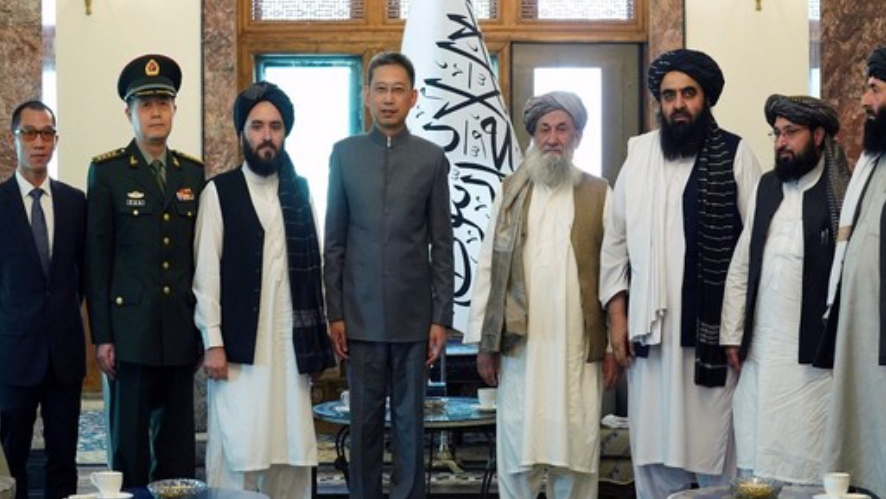Brazilian Elections 2022, a political inflection point?
- SIS Blog

- Oct 15, 2022
- 4 min read

By Dr. Aprajita Kashyap
In absence of a clear-cut win, the two candidates will face each other again in a runoff on 30 October 2022.
The momentous General Elections in Brazil on 2 October 2022, will witness the contest for President, Vice President, Governors and members of Congress and state-level assemblies. In the first round of Presidential elections, a candidate must receive more than 50 percent of the vote in the first round to secure an outright victory. In absence of a clear-cut win, the two candidates will face each other again in a runoff on 30 October 2022. The number of voters is expected to be high since voting in Brazil is compulsory for people older than 18, but those who are 16 years old can choose to cast a ballot, too (the extent of voting in 2018 elections was nearly 80 percent). The main contenders are Luiz Inácio Lula da Silva, the two-term former president of the Partido dos Trabalhadores, the Workers’ Party (also represents a three-party federation dubbed as ‘Brazil of hope’), and Jair Messias Bolsonaro of the right-wing Partido Liberal, Liberal Party ( leads the alliance ‘for the good of Brazil’).
High levels of polarisation and disinformation have contributed to the creation of extreme narratives, sporadic episodes of violence and expressions of apprehension of rigged elections. Sunday’s electoral process in Brazil, besides being the most ideologically polarised elections, is also being fought amongst certain economic constraints like high inflation, reeling poverty and gender inequality. Despite having a gender quota requiring women to constitute one-third of the total candidature in political parties, a lack of incentives and political will for engagement of women in politics, a high number of cases of violence against women in politics and structural imbalances, hinder the prospects for women’s participation.

Issues in Electoral Campaigns
The elections sometimes look evenly poised however the two contenders have differences in terms of being the favourites of certain constituencies. Lula has an advantage over Bolsonaro among the women voters as per the opinion polls, an indication of the abhorrence for the latter’s hyper-masculine bravado and ongoing attacks against female journalists. However, among Evangelical voters, it is an advantage for Bolsonaro, even though the Catholic voters still favour Lula. The poor Brazilians would perhaps vote for Lula in contrast to the conservative and wealthy Brazilians for whom Bolsonaro remains the preferred choice. Among the voters, those who prioritise social issues and economic well-being over other issues, are more likely to favour Lula. On the other hand, the voters who prioritise unfettered growth and centralisation will be seen voting for Bolsonaro. An additional interesting facet is that the young population and those in the middle age group under 45 are more likely to vote for Lula. Of the two candidates, Bolsonaro lays stress upon taking Brazil along the path of economic growth whereas Lula lays emphasis on sustainable development incorporating efforts towards the protection of the environment and indigenous people’s rights. By electing Lula, voters feel they would be ushering in the saviour of the Amazon and climate change, the architect of a new tax regime to allow high public spending and a planner who can end hunger and poverty in Brazil.
Bolsonaro’s claims to winning elections are hinged upon limiting interstate taxes to reduce gasoline prices for consumers and approval of an increased social welfare program. His chances of getting elected are dimmed by the contentions of handling of COVID 19 pandemic, of feeding hate and rising poverty and inequality. Change in Brazilian gun laws and marked upturning of environmental protection laws through his clear support for agribusiness may visibly become the other deciding issues. Furthermore, there are apprehensions about taking the help of the military to filch the elections.
The Internal and External Dynamics
On the domestic front, the opinion polls show voting percentage in the range of 44-51 for Lula and 33-40 percent voters tilted towards electing Bolsonaro. A decisive factor that is likely to impact the outcome of the elections is his use of digital strategies to create fake news and false narratives. At the international level, the UN experts who are part of the Special Procedures of the Human Rights Council entrusted with the task of the independent fact-finding and monitoring mechanisms in elections, have taken cognisance of threats and intimidation to women, indigenous peoples, Afro-descendants and LGBT persons. They have been urging the political parties in Brazil to ensure peaceful general elections. Going by the voting on Chile’s Constitutional referendum experience, opinion polls are mere indicators and may get totally falsified.
The inflection point that the Brazilian elections face, alongside concern about what may transpire on D-day, is whether the outcomes can be seen as an opportunity to reinforce its institutions, recalibrate its democracy to meet domestic and global challenges and better it’s ranking in the EIU’s Democratic Index. Civil society and the media must play key roles in ensuring a healthy democratic polity and must not bear the negative consequences of their expected role. It is critical for the military and members of any state institutions to refrain from any interference in the elections. The tradition of allowing international electoral observation missions viz., the Organization of American States, Mercosur’s Parliament, and the Inter-American Union of Electoral Organizations, would ensure speedy verdicts on the freedom and fairness of the electoral process.
Originally published: Financial Express, October 02, 2022
Posted here with the authorization of the author.
Dr. Aprajita Kashyap is Faculty in Latin American Studies Programme, CCUS&LAS, SIS, JNU, New Delhi.




